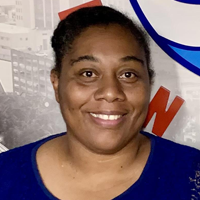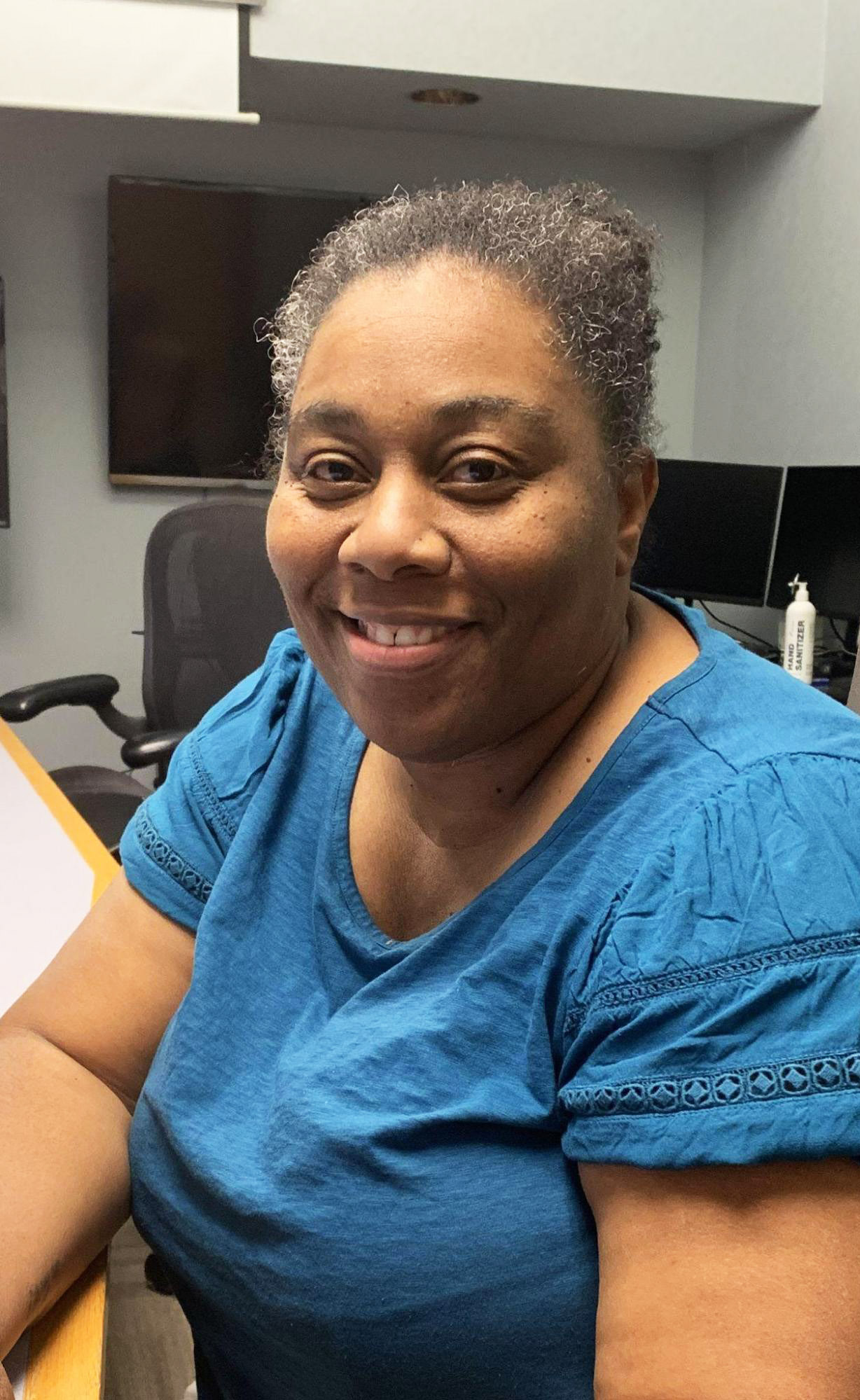Latrice Maxie
Location: Jackson, MS
Office: Weather Forecast Office, Jackson, MS
Job Title: Observing Program Leader (OPL)
Educational Background:
- Bachelor of Science in Meteorology from Jackson State University, Masters in Science Teaching (MST) in Science Education from Jackson State University and a Master of Science in Sport Coaching Education from the University of Southern Mississippi
Describe the career path that led you to your current job with the National Weather Service.
- When I was a junior in high school, I did a report on the Coriolis force for a physics class and it sparked my interest in meteorology. I knew I wanted to go to a Historically Black College or University (HBCU), and at the time Jackson State University was the only HBCU with a meteorology program. Although I had some limited exposure to other career paths, the National Weather Service (NWS) and the military seemed to be the most stable choices when I was a student. I started applying for jobs in the weather service shortly before graduation and continued through the fall. It took a few months, but I was offered a job and started my career in January 1999.
What do you do for the NWS?
- I have done a number of things for the NWS during my 20 year plus career. I started as an intern in the Austin/San Antonio office, where I worked for a little over 2 and a half years. I was promoted to a forecaster at the Jackson, MS Weather Forecast Office (WFO) and held the position of a journeyman forecaster for almost 8 years. In the summer of 2009, I became the Observing Program Leader (OPL). My official job as the OPL involves quality controlling observations and managing the local cooperative observer program. It also includes outreach and relationship building. My personal interests have allowed me to work closely with the service hydrologist and serve as the focal point for the hydro program and the flash flood program, where I was able to add supplemental information to local flash flood warnings and statements. Being the diversity focal point for a number of years, I have tried to find fun ways to share diverse and inclusive information with my coworkers. I have been an adjunct instructor in the meteorology department at Jackson State University for the past few years, helping to maintain a relationship between the office and a local university in addition to engaging students. I have served as a research mentor for students in a few summer programs. As the volunteer program coordinator, I also get to engage students.
What was the most interesting, exciting, or impactful weather/water event you experienced while working for the NWS and why does it stand out?
- The weather event that stands out most for me was one of the first tornadic events I worked on after moving to Jackson. I moved to the area in August and this event was the weekend after Thanksgiving. I was called in around 2 am to help work the radar. I don’t remember if it was my first tornado warning, but I issued a tornado warning for a community just northwest of the office. Unfortunately, someone within the warned area with whom I shared mutual friends died that night. It changed my perspective and raised so many questions for me about wording, alerts, preparedness and response related to tornado warnings.
What made you decide to pursue a career with the NWS?
- NWS was the main employer of meteorologists when my career was starting. When alumni came back to talk to students about careers and opportunities, they were all from the NWS. I knew the NWS would provide a stable career. I did apply for a few private sector positions, but I really wanted to work for NWS. I’m still here 24 years later!
What do you like most about working for the NWS?
- For me, the best thing about working for the NWS is helping people. Many of the people that we serve have genuine fears about the weather and the information that we provide helps bring them comfort and keeps them safe.
What advice do you have for someone interested in a career with the NWS?
- For people interested in the NWS, I would encourage them to make contact with a local office. Try to shadow someone or apply for the local volunteer program if they have one. Register with usajobs.gov and sign up for updates on Pathways opportunities. The NWS is very competitive, so you have to do more than just go to class. Participate in programs that will provide work experience, research experience or hands-on training.
What training or coursework would you recommend to someone interested in following your career path?
- I would recommend anyone interested in the NWS to take a good mix of coursework. In addition to the standard courses, communication courses, GIS courses or related training. Learning Python or related computer programming languages are good options. Much of what we do involves our ability to communicate information to the community in writing, verbally and digitally. Working for the NWS is more than just knowing the weather, and it helps to be well-rounded.

